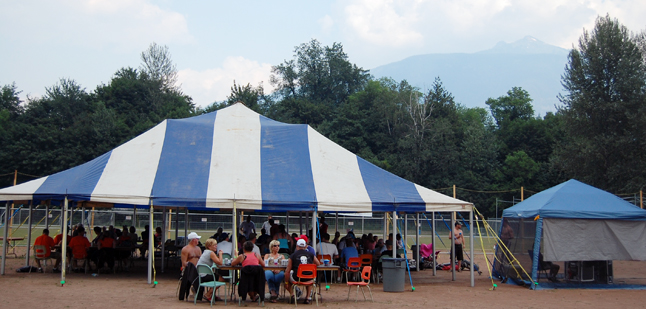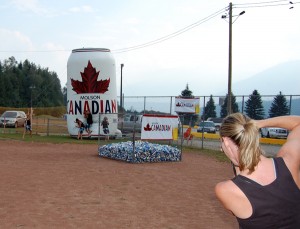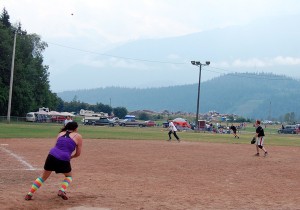
Every year at this time the chairman and directors of the Glacier Challenge Softball Tournament breathe a discreet sigh of relief.
The tourney, one of the major tourism events of the year, is over. The teams are heading home after an ideally successful weekend and the groups involved in making it a success are counting their blessings and their money.

That’s the way it’s supposed to be and that’s the way it has been for 21 of the 23 years that the tournament has been held. But the last couple of years have seen a change in the way the teams recreate after the day’s games. Until last year most of the players have spent much of their free time — and a lot of their money — in the beer garden run by the Rotary Club. But last year and this, virtually no one has been in the beer garden during the day and beer and cooler consumption has dropped significantly during the evening dances. It’s not that they’re not drinking. They are. They’re just not drinking large quantities of the Rotary Club’s beer. They’re buying alcohol at the BC Liquor Store or at private liquor shops and consuming it in their campsites, which are close enough to the bandstand that they can hear the bands hired to perform at the dances without having to pay for a wrist band actually go to the dance.
And that has the Glacier Challenge’s new Chairman, Brad Beerling, wondering about the future.
“I don’t think we need to reinvent the tournament, but we probably do need to tinker with it,” he said in a post-tournament interview Monday afternoon.
Beerling has been coming to the tournament as a player and volunteer for 15 years and while this is first year as chairman (he took over from Alan Chell) he is one of the younger generation of tournament participants that older volunteers hope will inject some new ideas into the 23-year-old event.
He said it may be time to look at a number of different aspects of the event, from security to beer garden operations. Some Rotary Club members who worked this past weekend expressed some concerns about abysmally low attendance at the beer garden. The Saturday night dance, which was attended by about 1,800 people, was the only really good night.
“We’ve been tossing around some ideas,” Beerling said, adding that one idea was possibly licensing an area near the Industrial Field for the night games, which usually attract a lot of spectators. Another alternative would be to relocate the beer garden itself so that it is closer to the field so that people can imbibe while watching the night games.
But part of the problem with the beer garden’s low attendance this year and last may be due to one of the Glacier Challenge’s biggest successes: camping close to the fields themselves.
Former tournament chairmen Mark McKee and Alan Chell both noted that the campsites are a great draw for the families that attend the event year after year and who don’t necessarily want to whoop it up. But their proximity also permits players who are die-hard partiers to purchase alcohol in town and then consume it in their campsites while listening to the bands that play at the nightly dances.
No one wants to discourage the camping. About 85 per cent of the teams (128 this year, down for one reason or another from the usual 140) that some to the Glacier Challenge are repeat participants. And the Glacier Challenge Organizing Committee likes the notion that people come back year after year. Offering a nominal weekend admittance fee of $5 to the beer garden while raising the price of beer from $4 a can to, say, $5 might help bring people back into the garden.
The committee may also look at their big-ticket expense — security. For the past several years the committee has been spending thousands — $13,000 this year — to hire a professional security company based in Kelowna. That could change next year, if a local security firm can be found to handle night security while a local club, backed up by the RCMP, would be willing to tackle daytime security.
“We’d like to keep things as local as possible,” Beerling said.

They’d also like to have more vendors. They did arrange for five food vendors (there were six last year), but only three actually showed up.
There may be other things the committee — and the clubs that rely on the Glacier Challenge as a major source of revenue for their community work — can do to reinvigorate the tournament. But for now we’ll just have to wait and see what they come up with in 2011.
As for the softball games themselves, “they’re doing just fine,” said Chell.
“And that’s what we want. People really do come here to play ball and have a good time, but playing ball is their primary focus. We can’t lose sight of that.”



